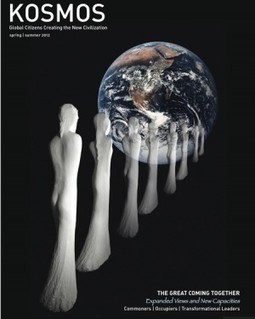I recently encountered a brilliant new essay by German writer Ina Praetorius that revisits the feminist theme of “care work,” re-casting it onto a much larger philosophical canvas. “The Care-Centered Economy: Rediscovering what has been taken for granted” suggests how the idea of “care” could be used to imagine new structural terms for the entire economy.
Research and publish the best content.
Get Started for FREE
Sign up with Facebook Sign up with X
I don't have a Facebook or a X account
Already have an account: Login
on peer-to-peer dynamics in politics, the economy and organizations
Curated by
jean lievens
 Your new post is loading... Your new post is loading...
|
|















